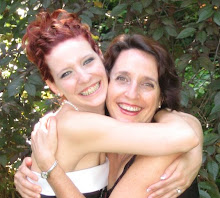Today I'd like to address the threshold between the easy scapegoat of theorizing and the painful admission of inaction, sins of omission, when it comes to the suffering of others, specifically the poor in America.
I've read the in-depth justifications for cutting poverty aid, cutting SNAP (food stamps), and keeping wages low. I'm not going to argue point-by-point on the reasons these theories are inaccurate or unfounded in reality. Arguments on theoretical points would continue to hold the situation on a theoretical plain. An insult to you, the reader, who lives daily in a real world, not a theoretical one.
In the real world, the poor live in shadows, hidden from the media and your eyes. In the real world there are millions of poor in America. Not a few overweight, loud-mouthed women, tattooed, angry youths, and old, lazy winos showcased for convenient display. No. These are not the millions of poor in America.
The millions of poor in America are the ones you don't want to see, so the media conveniently does not show them to you. Conveniently, they have no voice. No podium. No middle-class platform for you to comfortably observe them on display.
They are millions of children who did not choose to not be born where there's plenty of healthy food and a parent who's not exhausted from working two menial jobs and fighting off sickness. Queue the theory: "That parent should not have had children they can't afford. That parent should better themselves, get job training, get a skilled job."
Finger wagging doesn't make job training magically become accessible, nor the skilled jobs magically follow because of training. Nor does finger wagging put food on the table for millions of children just unlucky enough to be born to the parents you want to scold.
Maybe you had a poor upbringing. Your parents struggled, worked two jobs, and made it. And look at you, no privileged past, no free ride, but you're ok. Why can't they do it if you can? These are comfortable justifications for not really looking at the real lives of poor people. It's far easier to pass judgement on the millions we don't know and can't see. It feels fine. We can sleep quite well at night. We know they could make it if we did. If our parents did. It's their own fault if they're suffering. It's not necessary, after all.
I challenge all of us to consider that threshold for a moment. To just take a look at it. Myself included. What would it be like to peel back the veil of theories and stick our neck out just enough to see on the other side. To venture into the shadows of Chicago or Appalachia, to look into the eyes of hungry children, sick, worn out parents, to see the tattered text books and crumbling schools, to examine the low quality produce in the markets and the coats that cost too much, even at the Goodwill store. Maybe you'd rather see the $100 sneakers and expensive tattoos we've come to judge so well. But beyond the veil of sneaker theory is another reality for millions of Americans. And today I'm challenging all of us so that we can make an honest choice to look at them or to choose not to.
I've heard the comfortable say, "There's no real poverty in America. Africa has poverty. We don't have anyone in America who's starving to death. They're not really poor." This theory conveniently avoids confronting the reality that millions of Americans live in constant fear of sickness or injury, of being thrown out of their homes, of being victimized by predators and violence, with no hope of escape from their hopeless world. It's painful to look at them. It's easier to theorize about Africa.
In America thousands of laborers in factories, on farms, and in homes toil for less than half of minimum wage with threats and coercion holding them prisoner. They succumb to dangerous working conditions and are carted off to die, disposable, with another ready to take their place out of the same desperation that first enslaved the other.
Pull back the veil of theories. Blink a little because you have to adjust your eyes to the bright light. It burns a little, it stings at first. Our comfortable lives are the lie. Not the poverty we've hidden in the shadows. If we let the light shine into their shadows, we'll see that our assumptions, our comfortable theories, are actually crippling us, preventing us from the richest life we're capable of. Our most profound joy comes from embracing truth and acting on it.
We want to be firm in our convictions. We believe our theories are right. If that's true, then there really isn't a damning population of millions of Americans, wagging their fingers at us, condemning us, not from podiums and the media, not in banquet halls and convention centers, but in their beds at night as they hold their children tight, and know that we could understand their plight but refuse to.


